Welcome to Electrical Classroom, a complete Electrical Engineering web portal. This website will be really useful for all engineers, students, and electricians who are very eager to gain in-depth knowledge of Electrical engineering subjects. Here you can find a lot of articles, files, and tools related to Electrical engineering.
Electrical Engineering
Electrical Engineering is a branch of engineering studies that deals with electrically operated devices. This includes the study of electrical machines, power generation, power transmission and distribution, micro-controllers, sensors, etc. Subfields of electrical Engineering include Electronics Engineering, Telecommunication Engineering, Computer Engineering, Power Engineering, Computer Engineering, Power Engineering, Signal System Engineering, Instrumentation, robotics, etc.
What Does it Mean to be an Electrical Engineer?
An electrical engineer is a highly educated technician who designs and develops new types of electrical systems for both the public and private sectors. Electrical engineering involves solving complicated problems as they occur and testing equipment before any work is done.
Electrical engineers have advanced knowledge of electricity, electromagnetism, electronics, and computers in general. What electrical engineers do is work on large and small-scale systems to make sure the systems are processing information and transmitting energy correctly. An electrical engineer might work with pocket-sized electronics one day and supercomputers the next.
Try SNIPQR for url shortening and QR generation
How is electricity involved?
Electricity, in its basest definition, is a type of energy that is caused by negatively charged electrons. If electricity builds in one place, it is known as static electricity. When electricity moves from one place to another, it is labeled current electricity.
In electricity that moves, electrons must flow along closed pathways known as circuits, which generally consist of various components and wires. Most wires and parts are made of metals, including copper and aluminum, both of which are excellent electrical conductors. Metals conduct electricity because they are composed of an atomic structure that allows free electrons to flow smoothly through them.
You can further break down current electricity into two types that depend on how the current moves around a circuit. One variation, direct current (DC), moves around the circuit in the same direction. The second variation, alternating current (AC), constantly reverses its direction as it travels around the circuit.
In what industries do electrical engineers work?
Electrical engineering involves working with electrical systems like motor control and power generation, transmission, and distribution. This does not mean that the area of electrical engineers is confined to these but involved in diverse industries associated with various technologies. Some electrical engineers might work on household appliances while another engineer might work on telecommunication systems, or in electrical power stations.
Electrical engineers are not limited to industries that revolve around electricity. Instead, electrical engineers can work in mobile networking, finance, consulting, renewable energy, or nearly any other sector where problem-solving skills and logical thinking are required.
Electrical engineering is the backbone behind computers, tablets, and smartphones. Another typical example is providing electrical skills to the space program like deep-space communications, extraterrestrial GPS, imaging systems, and many other areas of space exploration. You will also find electrical engineers working on medical technology, including imaging machines like CT and MRI, blood pressure monitors, and ECG machines.
Electrical engineering deals directly with the technology of electricity. Most electrical engineers work with numerous different components and systems, ranging from microchips to large-scale power generators. Since its humble, albeit critical beginnings with the creation of batteries, electrical engineering has advanced to the point that the technology industry depends mostly on the work that electrical engineers perform. Without electrical engineers, there would be no light bulbs, radios, or televisions, let alone computers. Electrical engineering has branched out to different categories over the years, including areas like radio frequency, telecommunications, and digital circuits.
Electrical engineers are responsible for designing, developing, and testing electrical equipment and devices that produce conduct, or run-off electricity. Modern electrical engineers work on electrical appliances that utilize conductors, coils, magnets, inductors, etc. Most electrical devices run on the basic components that electrical engineers use in everyday practice. These devices include everything from power stations to the microprocessors inside your phone.
The advancement of what electrical engineers do now and in the future is extraordinary and continually growing.
How do electrical engineers work with electricity and electronics?
A subcategory of electrical engineering is electronic engineering. Electronic engineering applies the basic tenants of electrical engineering of creating, building, and testing electronic circuits. Most electronic circuits use a combination of components like resistors, capacitors, inductors, diodes, and transistors to develop a specific type of functionality.
Before the Second World War, electrical engineers in the electronics field worked solely on radios. In modern times, the field has grown to encompass, televisions, audio systems, microprocessors, and computers. Before the integrated circuit was first developed, most electronic circuits were built out of pieces that were easily handled and manipulated by humans. These circuits required too much space and power and were mostly dropped for integrated circuits in 1959. Integrated circuits are built of many small electrical components and are usually as little as a coin. Without integrated circuits, we would not have computers and other electronic devices that rely on integrated circuits to run.
What electrical engineers do, in this arena, is focused on the appliances and devices that use electricity, many of which average citizens use every day like smartphones and computers.
How is electricity utilized in electrical engineering?
Current electricity moves electrical energy from one to another; an example of current electricity is a lightning bolt. Current electricity is used to power all electrical appliances developed, built, and tested by electrical engineers. This includes everything from washing machines to MP3 players.
In electrical circuits, there is a closed path or loop through which an electric current flows. Electrical engineers make a circuit by linking various components with wire cables. What electrical engineers do is use current electricity and electrical circuits to build electronic devices that improve lives and provide much-needed help and entertainment.
“Can I choose a career in Electrical engineering?”
Electrical engineering is an advanced career choice that involves working directly with electricity, building electronics, and working on electrical circuits. Without electrical engineers, our current world of high-tech electronics would not exist.
From the invention of batteries and the light bulb to today’s creation of MP3 players and smartphones, electrical engineers have been around since the 19th century. They are a vital part of our technologically advanced world.
Common Electrical terms and their definitions
AC (Alternating Current)
AC Coupling
AC Generator
AC Motor
AC Power
ARM Processor
Active Power Control
Active Power
Actuator
Admittance
Alternating Current (AC)
Alternating Current
Ammeter
Ampacity
Ampere (A)
Amplifier
Amplitude
Analog Signal Processing
Analog Signal
Analog-to-Digital Converter (ADC)
Antenna
Apparent Power
Arc Flash
Arduino
Armature Resistance
Armature
Atomic Force Microscope
Attenuation
Automatic Transfer Switch (ATS)
Automation
Autotransformer
BJT (Bipolar Junction Transistor)
Back-EMF (Electromotive Force)
Backup Power
Ballast
Bandwidth
Battery
Binary Code
Binary System
Biomedical Engineering
Bipolar Junction Transistor (BJT)
Black Start Capability
Blackout
Bluetooth
Bode Plot
Boundary Scan
Breaker Failure Protection
Breaker
Brownout
Brushless DC Motor
Busbar
Capacitance Voltage Transformer (CVT)
Capacitance
Capacitive Reactance
Capacitor Bank
Capacitor Voltage Transformer (CVT)
Capacitor
Cathode-Ray Oscilloscope (CRO)
Circuit Analysis Techniques
Circuit Analysis
Circuit Board
Circuit Breaker Coordination
Circuit Breaker
Circuit
Closed Loop
Closed-Loop Control
Coaxial Cable
Combinational Logic
Communication Protocol
Communication System
Commutation
Complex Number
Conductivity
Conductor
Conductors
Control System
Control Systems
Control Theory
Control Valve
Converter
Coulomb (C)
Counter
Current Divider
Current Limiting Reactor
Current Transformer (CT)
Current
DC (Direct Current)
DC Generator
DC Motor
DC Power
Decibel (dB)
Decoder
Delta Connection
Demodulation
Dielectric Strength
Dielectric
Differential Protection
Digital Signal Processing (DSP)
Digital Signal
Digital-to-Analog Converter (DAC)
Diode
Direct Current (DC)
Direct Current
Distributed Generation
Distribution Automation
Distribution Lines
Distribution Transformer
Doppler Effect
Earth Fault
Earthing
Electric Arc
Electric Discharge
Electric Field Intensity
Electric Field
Electric Grid Integration
Electric Motor Control Centers (MCC)
Electric Motor Control
Electric Motor Controller
Electric Motor
Electric Power Conversion
Electric Power Distribution
Electric Power System
Electric Power
Electric Shock
Electric Vehicle (EV) Charging
Electric Vehicle (EV)
Electrical Code
Electrical Conductivity
Electrical Conductor
Electrical Discharge
Electrical Energy
Electrical Grid
Electrical Grounding Grid
Electrical Grounding
Electrical Harmonics
Electrical Impedance
Electrical Insulation
Electrical Insulator
Electrical Load Bank
Electrical Load Characterization
Electrical Load
Electrical Network
Electrical Panel
Electrical Power Generation
Electrical Power Grid
Electrical Power Meter
Electrical Power
Electrical Reactance
Electrical Resistance
Electrical Safety Standards
Electrical Safety
Electrical Substation
Electrical Switch
Electrical System
Electrical Voltage
Electrically Erasable Programmable Read-Only Memory (EEPROM)
Electricity Market
Electrolytic Capacitor
Electromagnetic Compatibility (EMC)
Electromagnetic Compatibility Testing (EMC Testing)
Electromagnetic Field (EMF)
Electromagnetic Field
Electromagnetic Induction
Electromagnetic Interference (EMI)
Electromagnetic Radiation
Electromagnetic Spectrum
Electromagnetic Wave Propagation
Electromagnetics
Electromagnetism
Electromechanical Relay
Electromechanical Systems
Electromotive Force (EMF)
Electron
Electronic Circuit
Electrostatic Discharge (ESD)
Electrostatics
Encoder
Energy Audit
Energy Conversion
Energy Efficiency
Energy Harvesting
Energy Management System (EMS)
Energy Storage System (ESS)
Energy Storage
Excitation System
Farad (F)
Faraday’s Law
Fault Analysis
Fault Clearance Time
Fault Clearance
Fault Current
Fault Detection and Diagnosis
Fault Locator
Fault Ride-Through
Feedback Control Systems
Feedback Control
Feedback
Ferromagnetic Material
Ferromagnetism
Fiber Optic Cable
Fiber Optics
Field-Effect Transistor (FET)
Filter
Flip-Flop
Fourier Transform
Frequency Converter
Frequency Modulation (FM)
Frequency Response
Frequency
Full-Wave Rectifier
Fuse
GSM (Global System for Mobile Communications)
Galvanometer
Gamma Correction
Gauss’s Law
Generator
Grid Integration
Ground Fault Circuit Interrupter (GFCI)
Ground Fault
Ground Resistance
Ground-Fault Circuit Interrupter (GFCI)
Ground
Grounding Electrode System
Grounding Electrode
Grounding Resistance
Grounding System
Grounding
Haptic Technology
Harmonic Analysis
Harmonic Distortion Analyzer
Harmonic Distortion Factor
Harmonic Distortion
Harmonic Filter Bank
Harmonic Filter
Harmonic Mitigation
Harmonic Resonance
Harmonic
Harmonics
Hertz (Hz)
High Voltage Direct Current (HVDC)
High Voltage Engineering
High Voltage
Hole
Human-Machine Interface (HMI)
Hybrid Vehicle
Hydroelectric Power
Impedance Matching
Impedance
Impulse Voltage Test
Inductance
Induction Motor
Inductive Load
Inductive Reactance
Inductor
Infrared (IR)
Inrush Current
Instrument Transformer
Instrumentation and Control Systems
Insulation Coordination
Insulation Resistance
Insulation
Insulator Flashover
Insulator
Integrated Circuit (IC)
Inverter
Isolation Transformer
Joule (J)
Joule Heating
Joule’s Law
Kilowatt (kW)
Kirchhoff’s Laws
Kirchhoff’s Voltage Law (KVL)
Light Emitting Diode (LED)
Lightning Arrester
Lightning Protection
Linear Regulator
Load Balancing
Load Center
Load Factor
Load Flow Analysis
Load Forecasting
Load Profile
Load Shedding
Logic Analyzer
Logic Gate
Logic Gates
MOSFET (Metal-Oxide-Semiconductor Field-Effect Transistor)
Magnetic Circuit
Magnetic Field
Magnetic Flux Density
Magnetic Flux
Magnetic Hysteresis
Magnetic Resonance Imaging (MRI)
Magnetomotive Force (MMF)
Megger
Mesh
Microcontroller
Microgrid
Microprocessor
Modulation Techniques
Modulation
Motor Control Center (MCC)
Motor Control Circuit
Motor Efficiency
Motor Starter
Motor
Multimeter
Mutual Inductance
Nanotechnology
Network Analysis
Network Analyzer
Network Topology
Neutral Grounding
Node
Noise
Nuclear Power
Ohm
Ohm’s Law
Open Circuit
Operational Amplifier (Op-Amp)
Optical Fiber
Optocoupler
Optoelectronics
Oscillator
Oscilloscope
Overcurrent Protection
Overvoltage Protection
PCB (Printed Circuit Board)
Parallel Circuit
Passive Component
Peak Voltage
Permittivity
Personal Protective Equipment (PPE)
Phase Angle
Phase Locked Loop (PLL)
Photodetector
Photodiode
Photovoltaic (PV) System
Photovoltaic Cell
Photovoltaic Effect
Photovoltaic System
Potentiometer
Power Amplifier
Power Cable
Power Consumption Monitoring
Power Consumption
Power Distribution Panel
Power Distribution System Planning
Power Distribution
Power Electronics Converter
Power Electronics Devices
Power Electronics
Power Factor Controller
Power Factor Correction
Power Factor Meter
Power Factor
Power Generation
Power Line Communication (PLC)
Power Loss
Power Measurement
Power Plant Efficiency
Power Plant
Power Quality Analyzer
Power Quality Standards
Power Quality
Power Semiconductor Device
Power Semiconductor
Power Station
Power Supply
Power System Analysis
Power System Economics
Power System Modeling
Power System Operation
Power System Planning
Power System Protection
Power System Restoration
Power System Stability
Power Transformer
Power Transmission
Power
Printed Circuit Board (PCB)
Programmable Automation Controller (PAC)
Programmable Logic Controller (PLC)
Protective Relay
Protective Relaying
Pulse Width Modulation (PWM)
Q Factor
Quantum Mechanics
Radar
Radiation
Radio Frequency Identification (RFID)
Reactive Power Compensation
Reactive Power Control
Reactive Power
Rectifier
Relay Coordination
Relay Protection
Relay
Remote Terminal Unit (RTU)
Renewable Energy
Residual Current Device (RCD)
Resistance
Resistor
Resolver
Resonance
Robotics
Root Mean Square (RMS)
Rotating Machine
SCADA (Supervisory Control and Data Acquisition)
Schematic Diagram
Self-Inductance
Selsyn (Synchro)
Semiconductor
Sensor
Sequential Logic
Series Circuit
Servo Motor
Short Circuit
Signal Processing
Signal
Silicon
Single-Phase System
Smart Grid
Smith Chart
Solar Cell
Solar Photovoltaic (PV) Array
Soldering
Solenoid
Solid-State Devices
Solid-State Relay
Substation
Superconductivity
Superconductor
Superposition Theorem
Surge Arrester
Surge Protection Device (SPD)
Surge Protection
Surge Protector
Switch
Switchgear
Synchronizing Panel
Synchronous Generator
Synchronous Motor
Telecommunications
Temperature Coefficient
Temperature Sensor
Tesla (T)
Thermistor
Thermocouple
Thermoelectric Effect
Three-Phase System
Thyristor
Torque Control
Transducer
Transformer Oil
Transformer
Transient Stability Analysis
Transient Stability
Transient Voltage Suppressor (TVS)
Transient
Transistor
Transmission Line
Transmission Lines
Transmitter
Transposition Tower
Transposition
Triac
Ultrasonic
Unbalanced Load
Uninterruptible Power Supply (UPS)
Variable Frequency Drive (VFD)
Volt (V)
Voltage Control
Voltage Dip
Voltage Divider
Voltage Drop
Voltage Flicker
Voltage Follower
Voltage Regulation
Voltage Regulator
Voltage Sag
Voltage Stabilizer
Voltage Transformer
Voltage Unbalance
Voltage
Watt (W)
Wattmeter
Waveform Distortion
Waveform
Wi-Fi (Wireless Fidelity)
Wind Turbine
Wireless Communication
X-Ray
X-ray
Zener Diode
Zero-Crossing Detection
Zero-Sequence Current
ZigBee
Zonal Electrical Distribution System
Amps Automation Basics Circuit Circuit breaker Circuit theory Contactor Converter Current DCS Difference Diode Earth Electric machines Electronics Energy Saving FAQ Fuse Ground Induction Induction motor Instruments Interview questions MCB MCCB Motor Motor protection Neutral PLC Power Power Electronics Power systems Q&A Relay Semiconductor Short circuit Switchgear Thyristors TOOLS Transformer Transistors Vfd Voltage Volts Working
Few Famous Electrical Engineers
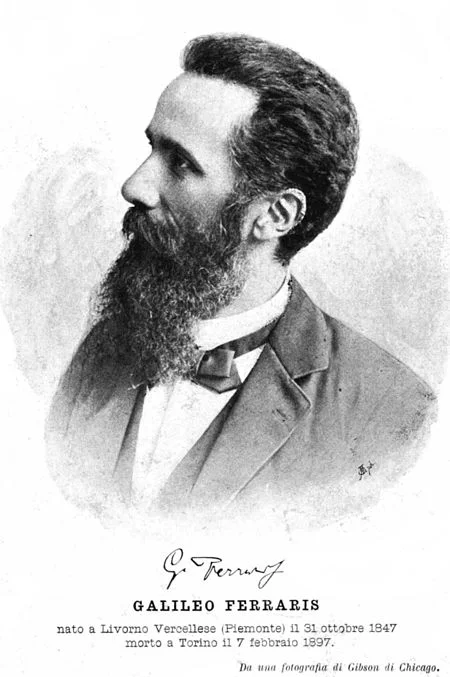
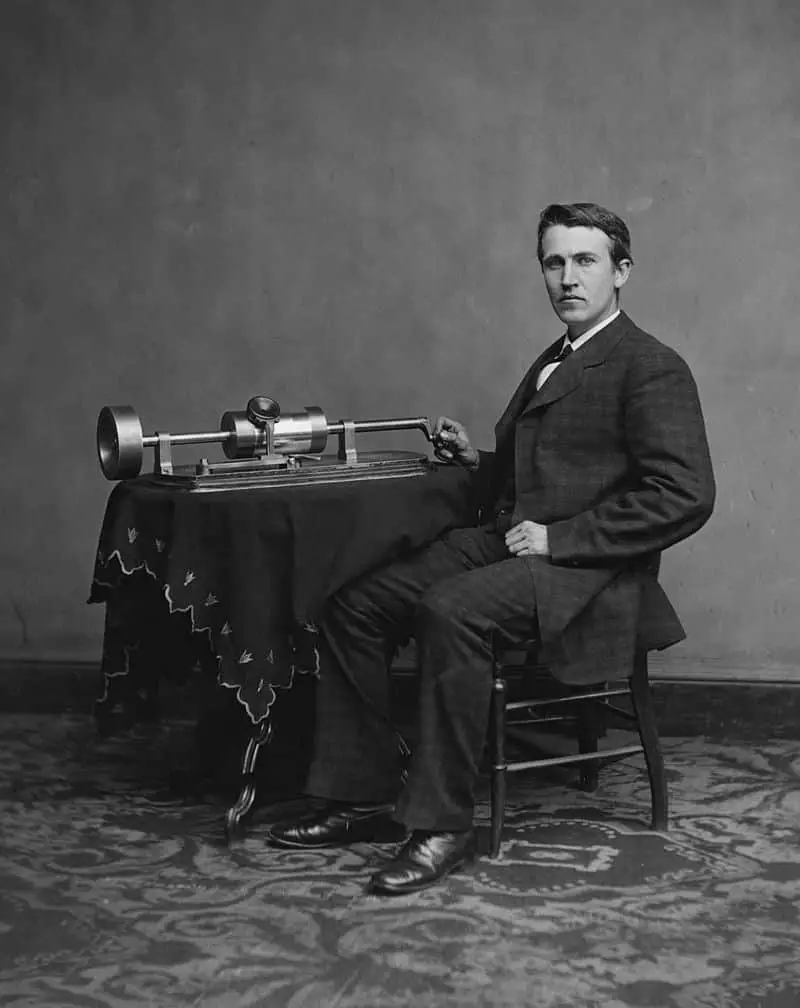
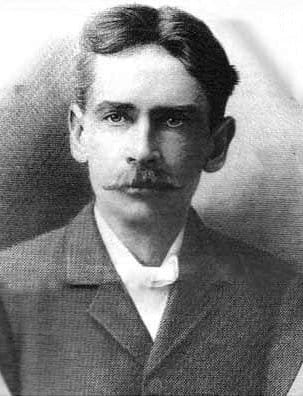
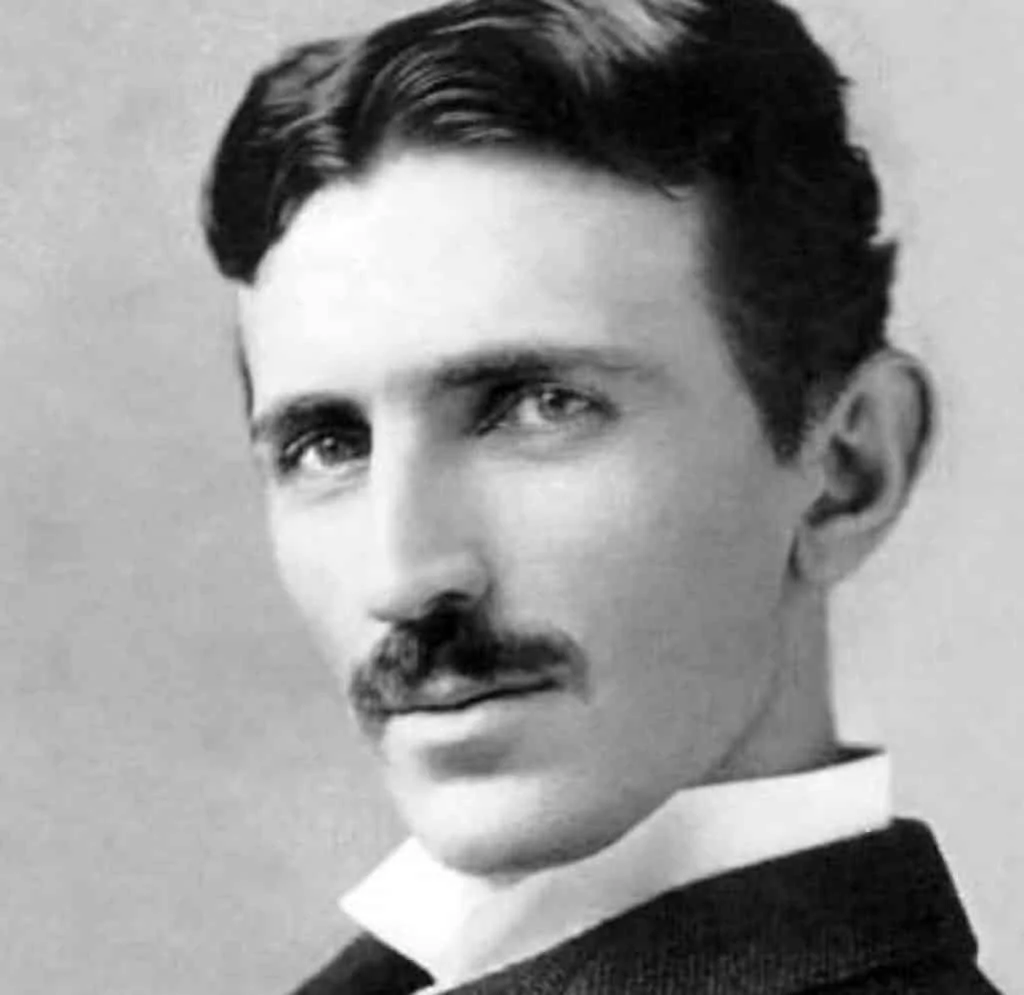
Our team of
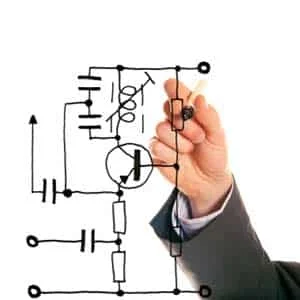
Circuit Theory
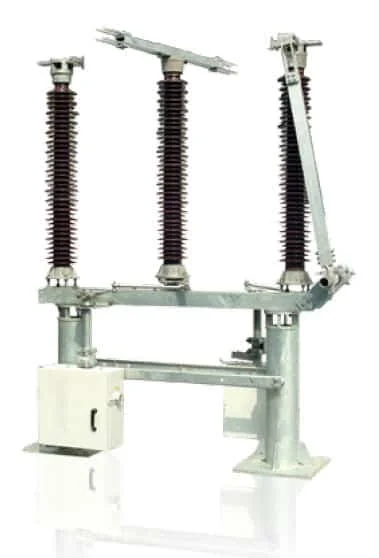
Protection & Switchgear
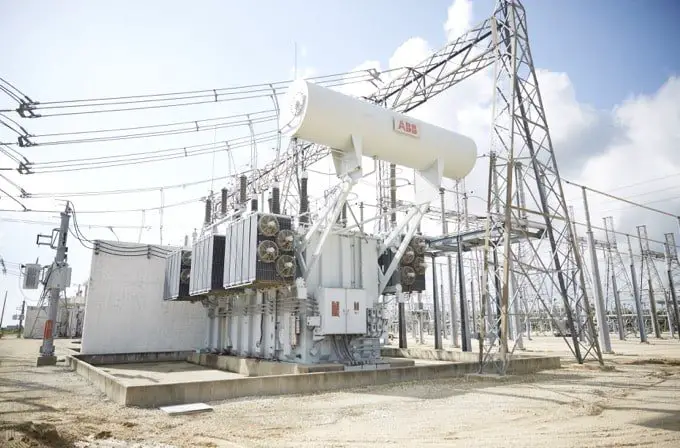
Electric Machines

Power Systems
- How AI can be used to slash your Home Energy Bills by 50%?
- Parallel Slave Port (PSP)
- Difference between ARM and Thumb states (ARM vs. thumb)
- Load Sharing in AC Drives (VFD / VSD)
- Understanding Issues with Contactors and Relays
- Power consumption of pool pump
- Materials used in an electric motor
- Impact of Surface Topologies on Electrical Properties of High Voltage Power Transmission Lines